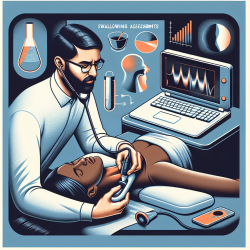As the global population ages, surgeons increasingly face the challenge of operating on older patients. Traditional wisdom suggests that age correlates with higher surgical risks. However, recent research highlights that frailty—an age-related decline across multiple physiological systems—is a more accurate predictor of surgical outcomes than chronological age alone.
The Importance of Frailty Assessment
Frailty is recognized as a critical factor in identifying vulnerable surgical patients. Despite this, many surgeons rely on subjective assessments rather than objective tools. This approach can lead to inconsistent evaluations and outcomes. The World Society of Emergency Surgery (WSES) has developed a position paper that reviews existing literature and provides recommendations for managing frail patients undergoing emergency laparotomy.
Key Recommendations from WSES
- Routine Frailty Screening: All patients aged 65 and older should undergo frailty screening using tools like the Clinical Frailty Scale. This is strongly recommended based on high-quality evidence.
- Comprehensive Geriatric Assessment (CGA): Vulnerable patients identified through screening should receive a CGA ideally upon admission or within 72 hours. This assessment helps tailor treatment plans to individual needs.
- Surgical Decision-Making: Decisions should consider frailty rather than age alone. Frail patients often face higher risks of poor outcomes post-surgery.
- Cognitive Function Assessment: Preoperative cognitive assessments are crucial for predicting postoperative delirium, which is common among frail older adults.
Implementing Frailty Assessments in Practice
The WSES paper emphasizes the need for surgeons to integrate frailty assessments into their practice. This involves using validated screening tools and collaborating with geriatric specialists to develop comprehensive care plans. By doing so, surgeons can better predict surgical risks and improve patient outcomes.
Challenges and Future Directions
While the benefits of frailty assessment are clear, implementation remains inconsistent due to resource limitations and varying levels of awareness among healthcare providers. Future research should focus on refining assessment tools and exploring their application in diverse clinical settings.
Encouraging Further Research
The field of frailty assessment in surgery is rapidly evolving, with ongoing studies aimed at enhancing our understanding of its impact on surgical outcomes. Practitioners are encouraged to stay informed about the latest developments and consider participating in research initiatives.
To read the original research paper, please follow this link: Assessing and managing frailty in emergency laparotomy: a WSES position paper.










